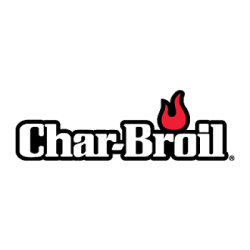 A class action filed against the makers of Char-Broil brand grills that alleges the igniter systems in certain barbeques is defective should be dismissed, according to the defendant’s motion filed this week.
A class action filed against the makers of Char-Broil brand grills that alleges the igniter systems in certain barbeques is defective should be dismissed, according to the defendant’s motion filed this week.
Lead plaintiffs Brian Zinn and Lawrence Dolce state in their class action lawsuit filed in Florida federal court in March that their Char-Broil grills were defective and one plaintiff says his grill exploded due to the defective ignition.
The plaintiffs further claim that Bradley Co., the company that manufactures the grills, made the problem worse by marketing Char-Broil grills as easy and reliable.
According to the lawsuit, Zinn and Dolce say they each bought a Char-Broil grill, including the Char-Broil Gourmet 4-Burner Gas Grill for $450 and the Char-Broil Patio Bistro 240 for $150.
The lawsuit states that the Patio Bistro 240 model was “recalled” with 60,000 others, but the recall required grill owners to fix the problem themselves by following multi-step instructions and re-wire their grill with electrodes. Zinn alleges he followed the instructions, but his Patio Bistro 240 then exploded. Zinn further claims that Char-Broil only sent him a replacement igniter that was a part of the recall. In addition, both plaintiffs allege that the company makes customers pay for replacement parts unless they get “irate.”
According to the class action, Char-Broil has “failed to disclose the problems with the faulty Igniter Modules installed in the Grills, as well as the safety hazard of lighting the Grills using the alternative method promoted by Char-Broil in its product manual instructions, to Class members and the public. As a result, Plaintiffs and thousands of consumers across the country have purchased one or more Grills without knowing that they will not perform the function for which they are intended and needed.”
The plaintiffs seek to represent a nationwide Class of those who purchased Char-Broil grills, along with a subclass of Florida residents. Additionally, the plaintiffs are seeking damages on behalf of the proposed Class, for Char-Broil to disgorge revenue from the sale of defective grills, a judgment ordering Char-Broil to notify purchasers, as well as declaratory and injunctive relief and attorneys’ fees.
W.C. Bradley Co., the maker of Char-Broil grills, shot back this week arguing that the class action plaintiffs’ claims were too vague and the case should be tossed. The company states that the Char-Broil grills that are the subject of the case are no longer covered by a warranty. The company also argues that Char-Broil purchasers did not notify the company about the problems with the ignitors and did not give Char-Broil the opportunity to try and solve the problem before bringing the class action.
According to the motion filed by the company, the plaintiffs “fail to identify where they purchased their grills, what specific representations each plaintiff saw before or during the purchase of the grills, where each plaintiff saw such representations, or when each plaintiff saw them.” Char-Broil argues that “[s]imply using the word ‘deceptive’ is insufficient.”
Zinn and Dolce are represented by Kenneth Gilman of Gilman Law LLP.
The Char-Broil Exploding Grill Class Action Lawsuit is Zinn v. W.C. Bradley Co., et al., Case No. 1:15-cv-24671, in the U.S. District Court for the Southern District of Florida.
UPDATE: On June 17, 2016, the plaintiffs voluntarily dropped their case. The court dismissed the case with prejudice, with each party responsible for their own costs and attorneys’ fees.
ATTORNEY ADVERTISING
Top Class Actions is a Proud Member of the American Bar Association
LEGAL INFORMATION IS NOT LEGAL ADVICE
Top Class Actions Legal Statement
©2008 – 2026 Top Class Actions® LLC
Various Trademarks held by their respective owners
This website is not intended for viewing or usage by European Union citizens.















12 thoughts onChar-Broil Class Action Says Grills Have Defective Lighters
UPDATE: On June 17, 2016, the plaintiffs voluntarily dropped their case. The court dismissed the case with prejudice, with each party responsible for their own costs and attorneys’ fees.